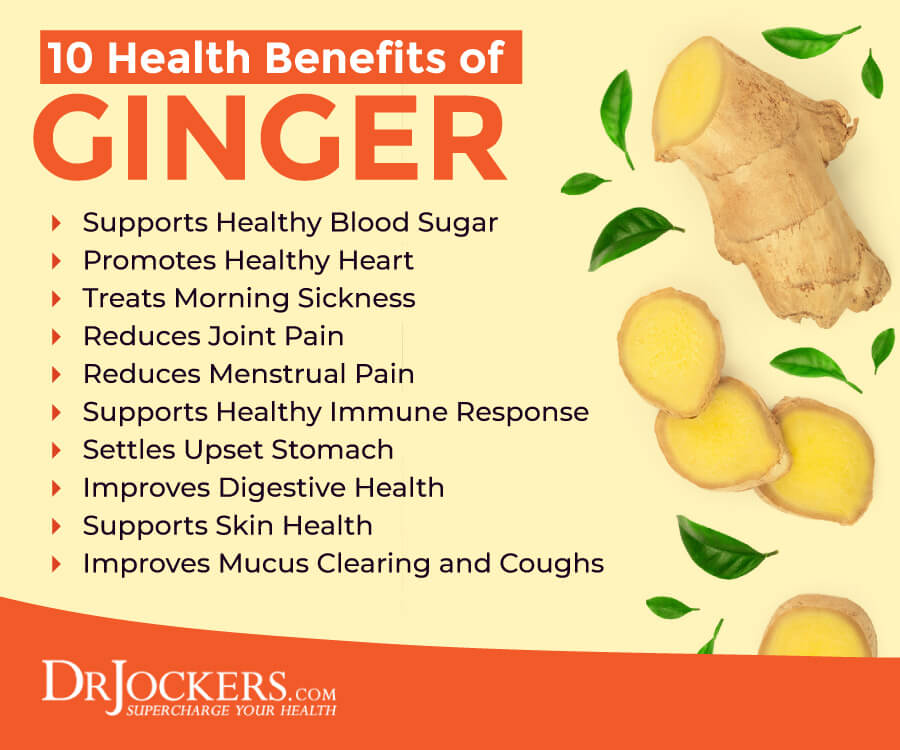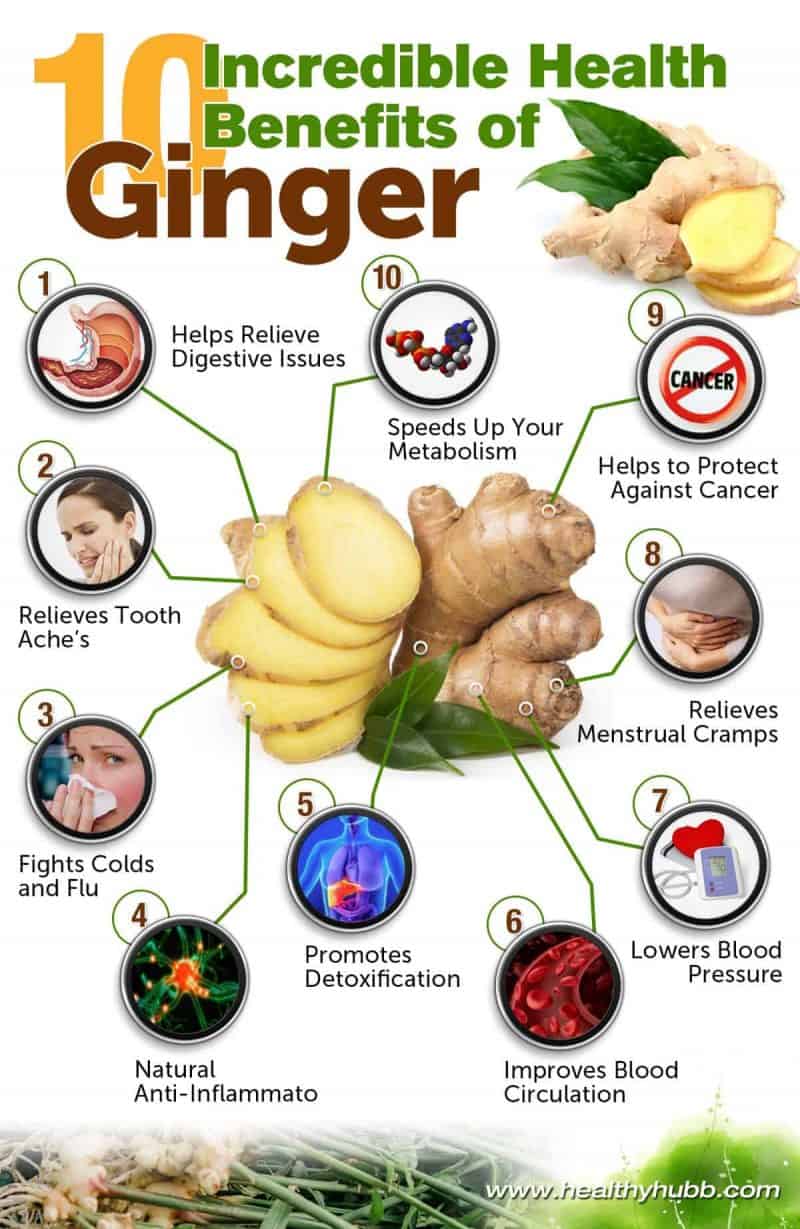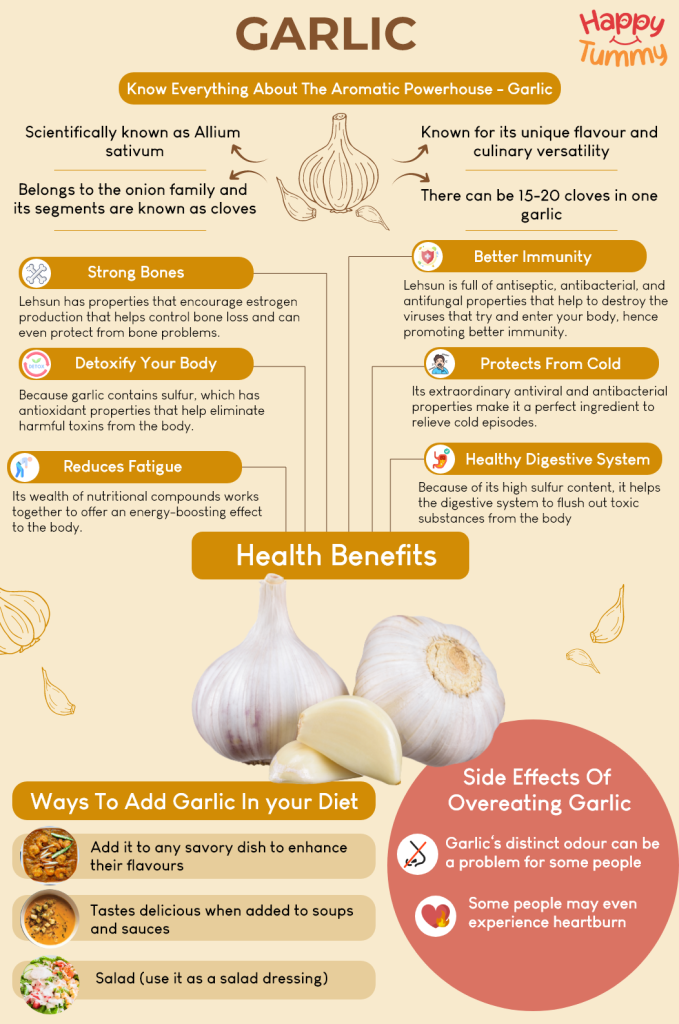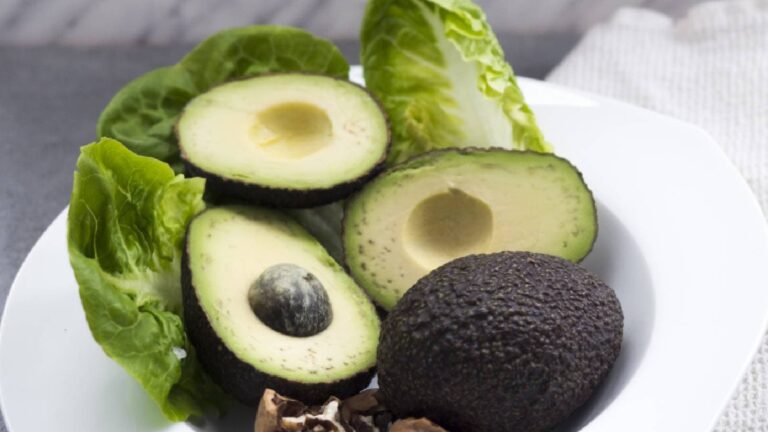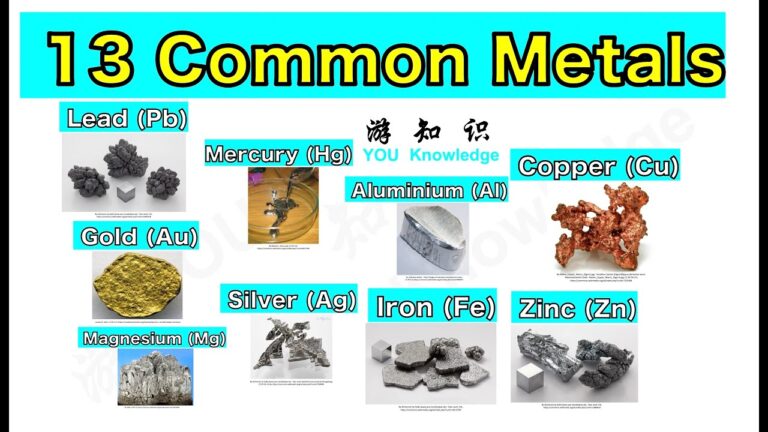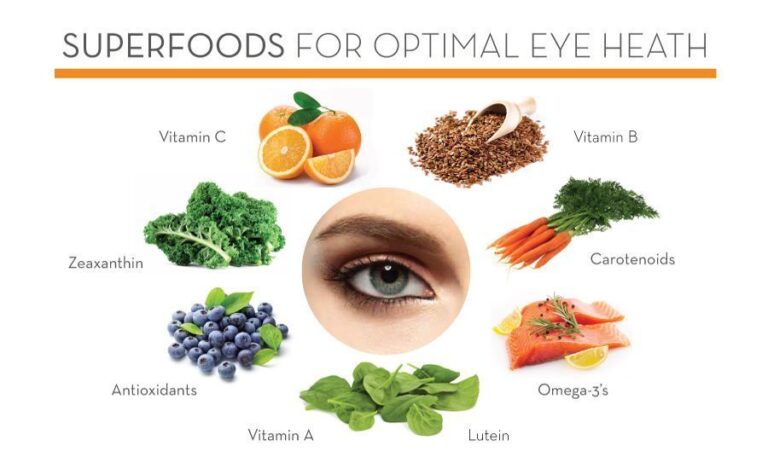The Incredible Health Benefits of Ginger You Need to Know: A Journey Through Time and Science
The air hangs heavy, thick with the scent of spices. In a bustling market stall, amidst pyramids of saffron and cardamom, a gnarled, unassuming root lies in wait. Its skin is a humble, earthy brown, its form irregular, almost defiant in its unpretentiousness. Yet, cut into it, and a vibrant, fibrous yellow heart is revealed, releasing an aroma that is at once pungent, citrusy, and warmly piquant. This is ginger, Zingiber officinale, a root that has journeyed across continents and millennia, not merely as a culinary delight, but as a silent, powerful healer, a testament to nature’s enduring wisdom.
For centuries, before the advent of modern pharmaceuticals, humanity looked to the earth for solace and cure. And in that vast botanical pharmacy, ginger consistently stood out, revered by ancient civilizations for its potent medicinal properties. From the sun-drenched plains of India to the sprawling dynasties of China, its legend grew, whispered from healer to apprentice, passed down through generations. Today, as we navigate an era of unprecedented scientific advancement, the humble ginger root continues to surprise and impress, its ancient reputation not only validated but amplified by a growing body of rigorous research. This is its story – a journey from ancient lore to cutting-edge science, unveiling the incredible health benefits of ginger you absolutely need to know.
A Journey Through Time: Ginger’s Storied Past
To truly appreciate ginger’s present-day significance, one must first embark on a voyage into its past. Its origins are shrouded in the mists of antiquity, believed to have first bloomed in the tropical rainforests of South Asia, specifically in India or Southeast Asia. Here, it was cultivated and cherished as early as 3,000 BCE, finding its way into the foundational texts of both Ayurvedic and Traditional Chinese Medicine (TCM).
In Ayurveda, the ancient Indian system of holistic healing, ginger was known as "Vishwabheshaj," meaning "the universal medicine." It was considered a powerful digestive aid, a warming agent, and a panacea for a myriad of ailments, from respiratory issues to joint pain. Practitioners prescribed it to balance the body’s doshas, particularly Kapha and Vata, due to its pungent taste and warming energy. Fresh ginger was often used for its stimulating and cleansing properties, while dried ginger was valued for its heating and pain-relieving effects.
Similarly, in Traditional Chinese Medicine (TCM), ginger, or "Sheng Jiang" (fresh) and "Gan Jiang" (dried), held a place of paramount importance. It was used to dispel cold, warm the middle jiao (digestive system), alleviate nausea and vomiting, and resolve toxicity. Its ability to "surface the exterior" made it a common remedy for the initial stages of the common cold, believed to help the body expel pathogens. The Chinese also valued its harmonizing properties, often combining it with other herbs to mitigate their harshness.
As civilizations expanded and trade routes flourished, ginger began its epic journey across the globe. By the 1st century AD, Roman traders had brought it to Europe, recognizing its value not just as a spice but as a medicinal herb. Its popularity waned somewhat with the fall of the Roman Empire but was rekindled during the Middle Ages, thanks to Arab traders who reintroduced it to Europe. It became a highly prized commodity, often used to preserve food, mask the taste of spoiled meats, and, perhaps most importantly, to combat the dreaded plague and a host of digestive complaints. Medieval Europeans also attributed aphrodisiac qualities to ginger, further cementing its allure.
The Age of Exploration saw ginger reach the Americas. Spanish conquistadors introduced it to the Caribbean and Mexico in the 16th century, where it quickly adapted to the tropical climate, becoming a staple in local cuisines and traditional remedies. From a wild plant in Asian jungles, ginger had truly become a global phenomenon, its reputation as a versatile spice and a potent medicine transcending cultures and epochs.
The Science Beneath the Spice: Unpacking Ginger’s Bioactive Compounds
The enduring legacy of ginger is not merely anecdotal; it is deeply rooted in its complex biochemistry. Modern science has meticulously peeled back the layers of this remarkable root, identifying the key bioactive compounds responsible for its myriad health benefits. These compounds are primarily phenolic and terpene compounds, which contribute to ginger’s distinctive aroma, pungent taste, and powerful therapeutic effects.
The most well-known and extensively studied of these compounds are the gingerols, particularly -gingerol, -gingerol, and -gingerol. These are the primary active components found in fresh ginger and are responsible for its characteristic pungency. Gingerols are potent antioxidants and anti-inflammatory agents, directly inhibiting the production of pro-inflammatory cytokines and enzymes.
However, ginger’s chemical profile is dynamic. When ginger is dried, cooked, or exposed to heat, gingerols undergo a chemical transformation, losing a water molecule to become shogaols. The most prominent of these is -shogaol, which is often found in higher concentrations in dried ginger. Shogaols are even more pungent and possess greater anti-inflammatory and antioxidant activity than gingerols. This transformation explains why dried ginger can sometimes feel "hotter" or more potent in its medicinal effects than fresh ginger.
Another significant compound is zingerone, which gives cooked ginger its sweet, less pungent flavor. While less studied than gingerols and shogaols, zingerone also contributes to ginger’s antioxidant and anti-inflammatory properties.
Beyond these major players, ginger contains a complex symphony of other compounds, including paradols, sesquiterpenes (like β-bisabolene, zingiberene, and farnesene), and various volatile oils. It is this synergistic interplay of multiple bioactive compounds, rather than the action of a single "magic bullet," that accounts for ginger’s broad spectrum of therapeutic actions. This complexity is a hallmark of natural medicines and underscores why whole ginger often outperforms isolated compounds in research.
These compounds exert their effects through a variety of intricate mechanisms at the cellular and molecular level. They interact with receptors, modulate enzyme activities, influence gene expression, and directly scavenge free radicals. Understanding these mechanisms is key to appreciating the depth of ginger’s healing power, moving beyond traditional belief to evidence-based efficacy.
The Incredible Health Benefits: A Comprehensive Exploration
Armed with a historical perspective and a basic understanding of its chemical prowess, we can now delve into the specific, scientifically backed health benefits that make ginger a true powerhouse of natural medicine.
1. The Digestive Dynamo: Nausea, Indigestion, and Gut Health
Ginger’s reputation as a digestive aid is perhaps its most ancient and well-established. Modern research has affirmed its efficacy in a number of gastrointestinal issues:
-
Nausea and Vomiting: This is where ginger truly shines. Numerous studies have demonstrated its effectiveness against various forms of nausea, including:
- Morning Sickness (Pregnancy-induced Nausea): Ginger is often recommended as a safe and effective natural remedy for expectant mothers. It is believed to work by influencing serotonin receptors in the gut and brain, which play a key role in the nausea reflex.
- Chemotherapy-Induced Nausea and Vomiting (CINV): While not a replacement for conventional antiemetics, ginger has shown promise in reducing the severity of CINV when used as an adjuvant therapy. Its mechanism here involves both central (brainstem) and peripheral (gut) effects, including accelerating gastric emptying.
- Motion Sickness: Ginger can significantly reduce symptoms of motion sickness, making it a natural alternative to over-the-counter medications. It helps by preventing gastric dysrhythmias and calming the digestive tract.
- Post-Operative Nausea and Vomiting (PONV): Studies indicate that ginger can be as effective as some conventional drugs in reducing PONV, making recovery more comfortable for patients.
-
Indigestion (Dyspepsia): Chronic indigestion, characterized by discomfort or pain in the upper abdomen, often results from delayed gastric emptying. Ginger has been shown to accelerate the emptying of the stomach, thereby reducing feelings of fullness, bloating, and discomfort after meals. It stimulates digestive enzymes and increases the motility of the gastrointestinal tract.
-
Bloating and Gas: Ginger’s carminative properties help to relax the muscles of the digestive tract, allowing trapped gas to escape more easily. Its ability to stimulate digestion also helps prevent the fermentation of undigested food, a common cause of gas and bloating.
-
Irritable Bowel Syndrome (IBS): While more research is needed, ginger’s anti-inflammatory and spasmolytic (muscle-relaxing) effects suggest a potential role in managing symptoms of IBS, particularly abdominal pain and cramping.
2. The Potent Anti-Inflammatory Agent: Soothing Aches and Pains
Chronic inflammation is a silent enemy, implicated in a vast array of modern diseases, from heart disease and diabetes to cancer and autoimmune disorders. Ginger’s anti-inflammatory prowess is one of its most celebrated attributes:
-
Osteoarthritis (OA) and Rheumatoid Arthritis (RA): Gingerols and shogaols are powerful inhibitors of pro-inflammatory enzymes like cyclooxygenase-2 (COX-2) and lipoxygenase (LOX), which are key mediators of pain and inflammation. Studies have shown that regular consumption of ginger can significantly reduce pain and improve functional mobility in individuals with OA and RA, sometimes comparable to the effects of non-steroidal anti-inflammatory drugs (NSAIDs) but with fewer side effects. It also suppresses the production of inflammatory cytokines such as TNF-alpha and IL-1beta.
-
Muscle Pain and Soreness (DOMS): For athletes and active individuals, ginger offers a natural solution for delayed onset muscle soreness (DOMS). While it may not provide immediate relief, daily consumption has been shown to reduce the progression of muscle pain following eccentric exercise, likely due to its anti-inflammatory effects working over time to alleviate exercise-induced muscle damage.
-
General Inflammatory Conditions: Its broad-spectrum anti-inflammatory action means ginger can be beneficial in any condition where systemic inflammation is a contributing factor, promoting overall well-being.
3. The Powerful Antioxidant Properties: Battling Oxidative Stress
Oxidative stress, caused by an imbalance between free radicals and antioxidants in the body, leads to cellular damage and is a major contributor to aging and chronic diseases. Ginger is packed with antioxidants that combat this detrimental process:
- Free Radical Scavenging: Gingerols, shogaols, and other phenolic compounds in ginger are highly effective free radical scavengers. They neutralize harmful free radicals, protecting cells from oxidative damage.
- Enhancing Endogenous Antioxidant Systems: Beyond direct scavenging, ginger also boosts the body’s own antioxidant defenses, increasing the activity of enzymes like glutathione peroxidase and superoxide dismutase, which are crucial for cellular protection. This dual action makes ginger an exceptional ally against oxidative damage.
4. The Cardiovascular Guardian: Supporting Heart Health
Emerging research highlights ginger’s potential role in protecting the cardiovascular system:
- Cholesterol Reduction: Several studies have indicated that ginger can significantly lower levels of LDL (bad) cholesterol and triglycerides, while potentially increasing HDL (good) cholesterol. This effect is thought to be mediated by its ability to modulate lipid metabolism and reduce cholesterol absorption.
- Blood Pressure Regulation: While not a primary treatment for hypertension, ginger may contribute to blood pressure management. Some studies suggest it can act as a natural calcium channel blocker and even inhibit the angiotensin-converting enzyme (ACE), similar to some blood pressure medications, leading to vasodilation and reduced blood pressure. (However, individuals on blood pressure medication should consult their doctor before using ginger therapeutically).
- Anti-Platelet Effects: Ginger has demonstrated anti-platelet aggregation properties, meaning it can help prevent the formation of blood clots. This effect, similar to aspirin, could potentially reduce the risk of cardiovascular events like heart attacks and strokes. Again, caution is advised for individuals on anticoagulant medications due to the risk of increased bleeding.
5. The Metabolic Maestro: Blood Sugar and Weight Management
In the global battle against obesity and type 2 diabetes, ginger shows promising potential:
- Type 2 Diabetes: Ginger has been shown to improve various markers of metabolic health. It can significantly reduce fasting blood sugar levels, improve insulin sensitivity, and lower HbA1c (a measure of long-term blood sugar control). Its anti-inflammatory and antioxidant properties also protect against the complications associated with diabetes.
- Weight Loss: Some studies suggest ginger may aid in weight management by increasing thermogenesis (the body’s heat production), thereby burning more calories. It can also enhance satiety, helping to reduce overall food intake, and influence fat metabolism. Its role in improving digestion and reducing inflammation further supports a healthy metabolism.
6. The Brain Booster & Neuroprotective Potential: Cognitive Enhancement
The brain, too, can benefit from ginger’s protective powers:
- Cognitive Function: Preliminary research, particularly in animal models and some human studies, suggests that ginger may enhance cognitive function. It has been linked to improvements in memory, attention, and reaction time, possibly due to its antioxidant and anti-inflammatory effects that protect brain cells from damage.
- Neurodegenerative Diseases: The anti-inflammatory and antioxidant properties of gingerols and shogaols make ginger a candidate for neuroprotection against diseases like Alzheimer’s and Parkinson’s. By reducing oxidative stress and inflammation in the brain, it may help to slow neuronal degeneration and preserve cognitive function. More human trials are needed in this exciting area.
7. The Immune System Modulator: Fighting Off Illness
Ginger has long been a go-to remedy for common colds and flu, and its immune-modulating effects are now being explored:
- Cold and Flu: Ginger’s warming properties (diaphoretic effect) help induce sweating, which can be beneficial in fever. Its antimicrobial and antiviral properties can help combat the pathogens responsible for respiratory infections. It also helps to clear congestion and soothe sore throats.
- Allergies: Some research indicates that ginger may possess anti-histamine properties and can stabilize mast cells, which release histamine during allergic reactions, potentially alleviating allergy symptoms.
8. The Cancer Combatant: Emerging Research
Perhaps one of the most exciting, albeit still nascent, areas of ginger research is its potential role in cancer prevention and treatment. While most studies are in vitro (test-tube) or animal-based, the findings are compelling:
- Anti-Proliferative and Apoptotic Effects: Ginger compounds, particularly 6-gingerol and 6-shogaol, have been shown to inhibit the proliferation of cancer cells and induce apoptosis (programmed cell death) in various cancer types.
- Anti-Angiogenesis: They can also inhibit angiogenesis, the formation of new blood vessels that tumors need to grow and spread.
- Chemosensitization: Ginger may enhance the effectiveness of chemotherapy drugs and reduce their side effects, acting as a chemosensitizer.
- Specific Cancers: Research has shown promise against colorectal, ovarian, prostate, breast, and pancreatic cancers. It’s crucial to emphasize that ginger is not a cure for cancer, but it holds significant potential as a complementary therapy and for prevention. More robust human clinical trials are urgently needed.
9. Pain Relief Beyond Arthritis: Addressing Various Discomforts
Ginger’s analgesic properties extend beyond chronic inflammatory conditions:
- Menstrual Pain (Dysmenorrhea): Studies have demonstrated that ginger can be remarkably effective in reducing the severity of menstrual pain, sometimes comparable to NSAIDs like ibuprofen, but with fewer side effects. It works by reducing the production of prostaglandins, which cause uterine contractions and pain.
- Migraines: Some evidence suggests that ginger can help alleviate migraine headaches, potentially by modulating serotonin pathways and its anti-inflammatory effects.
Practical Applications: How to Integrate Ginger into Your Life
The beauty of ginger lies not only in its potency but also in its versatility. Incorporating this powerhouse into your daily routine is simple and delicious.
- Fresh Ginger: The most common and arguably most potent form. Grate it into stir-fries, curries, soups, and dressings. Mince it for marinades or simply chew a small piece for immediate nausea relief.
- Ginger Tea: A classic remedy. Steep thin slices of fresh ginger in hot water for 5-10 minutes. Add lemon and honey for extra flavor and immune boost. Dried ginger powder can also be used, but in smaller quantities.
- Dried Ginger Powder: A convenient staple for baking, spice rubs, and seasoning. Remember that dried ginger has a more concentrated flavor and higher shogaol content.
- Crystallized Ginger: Ginger cooked in sugar and then coated in sugar. It’s a sweet treat that can also help with nausea, though its sugar content should be noted.
- Ginger Juice: Fresh ginger can be juiced and added to smoothies, health shots, or mixed with other juices.
- Ginger Essential Oil: Used topically (diluted in a carrier oil) for muscle pain or aromatically for nausea. Never ingest essential oils without professional guidance.
- Supplements: Available in capsule or tincture form, providing standardized doses of gingerols and shogaols. These are often preferred for therapeutic use under professional guidance.
Dosage: While there’s no single recommended dose, for general health benefits, 1-4 grams of fresh ginger or 0.5-1 gram of dried ginger powder daily is a common range. For specific conditions like nausea, 1-1.5 grams of ginger powder, divided into doses throughout the day, has been shown effective. Always start with smaller amounts and adjust based on your body’s response.
Cautions, Side Effects, and Interactions: A Responsible Approach
While ginger is largely safe for most people, especially when consumed in culinary amounts, it’s crucial for a knowledgeable audience to be aware of potential side effects and drug interactions, particularly when using it in therapeutic doses.
- Mild Side Effects: In some individuals, especially at higher doses, ginger can cause mild side effects such as heartburn, stomach upset, diarrhea, or gas. These are generally rare and can often be mitigated by taking ginger with food.
- Blood Thinners: Ginger has anti-platelet effects, meaning it can thin the blood. Individuals taking anticoagulant medications (blood thinners) like warfarin (Coumadin), aspirin, or clopidogrel should exercise caution and consult their doctor before using ginger supplements, as it could increase the risk of bleeding.
- Blood Pressure Medications: Due to its potential to lower blood pressure, ginger might interact with blood pressure medications, leading to an additive effect. Monitor blood pressure closely and consult a healthcare provider.
- Diabetes Medications: Ginger can lower blood sugar levels. If you are taking medication for diabetes, using ginger supplements might lead to hypoglycemia (low blood sugar). Regular blood sugar monitoring and consultation with your doctor are essential.
- Gallstones: Ginger can increase bile secretion. Individuals with gallstones or bile duct obstruction should use ginger with caution and under medical supervision.
- Pregnancy: While ginger is widely considered safe and effective for morning sickness during pregnancy, especially at doses of 1 gram per day, it’s always best to consult an obstetrician before using any supplement during pregnancy, particularly in higher doses.
- Surgery: Due to its blood-thinning properties, it’s generally recommended to discontinue ginger supplements at least two weeks before any scheduled surgery.
- Quality Matters: When purchasing ginger, especially supplements, opt for reputable brands that provide third-party testing for purity and potency.
The Future of Ginger: Research and Beyond
The story of ginger is far from over. As scientific tools become more sophisticated, researchers continue to uncover new facets of its incredible power. The future holds immense promise for ginger, particularly in:
- Personalized Medicine: Understanding how individual genetic variations influence response to ginger.
- Novel Drug Development: Isolating specific ginger compounds for targeted therapies against chronic diseases.
- Combination Therapies: Exploring ginger’s synergistic effects with other herbs or conventional treatments.
- Sustainable Cultivation: Ensuring that this precious resource can continue to benefit humanity for generations to come.
Conclusion: A Root of Enduring Power
From the ancient healing traditions of the East to the sophisticated laboratories of modern science, ginger has consistently proven itself to be a true marvel of the plant kingdom. Its journey through time is a testament to its enduring efficacy, its humble appearance belying a complex symphony of bioactive compounds that offer a breathtaking array of health benefits.
Whether you seek relief from nausea, a natural anti-inflammatory, a boost to your digestive system, or a protective shield against oxidative stress, ginger stands ready, a potent ally in your pursuit of well-being. It is a reminder that often, the most profound remedies are found not in manufactured compounds, but in the intricate wisdom of the natural world. So, the next time you encounter that gnarled, earthy root, remember its incredible story. Embrace its warmth, savor its pungency, and integrate its power into your life, for the incredible health benefits of ginger are truly a gift you need to know.
